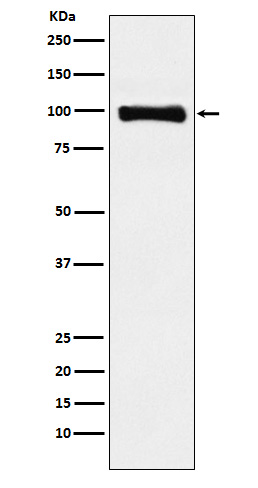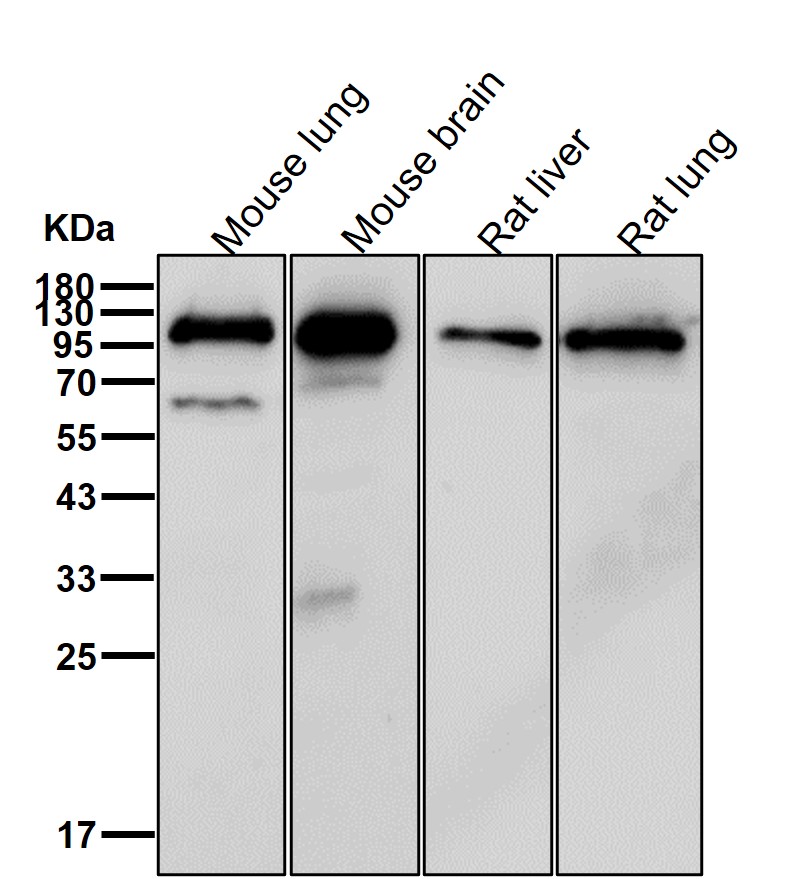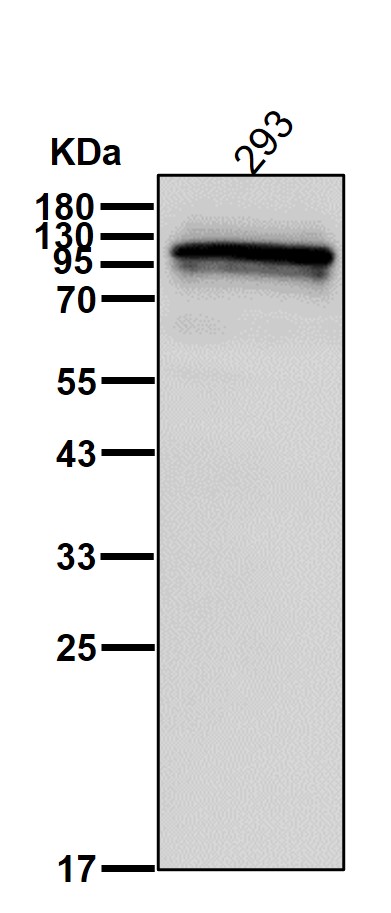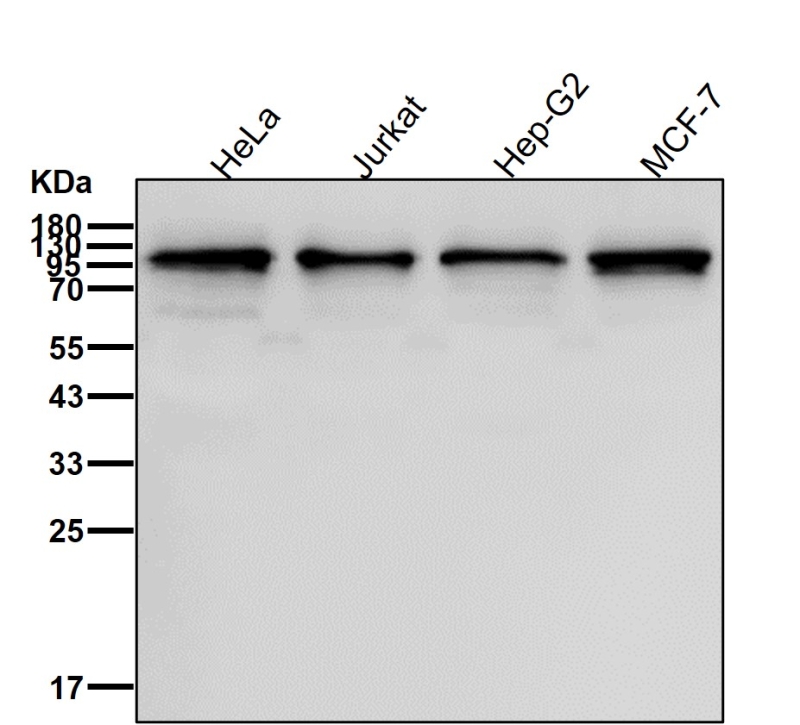



| WB | 咨询技术 | Human,Mouse,Rat |
| IF | 咨询技术 | Human,Mouse,Rat |
| IHC | 咨询技术 | Human,Mouse,Rat |
| ICC | 技术咨询 | Human,Mouse,Rat |
| FCM | 咨询技术 | Human,Mouse,Rat |
| Elisa | 咨询技术 | Human,Mouse,Rat |
| Aliases | HIWI; MIWI; PIWI; PIWIL1;;Piwi like protein 1 |
| WB Predicted band size | 99 kDa |
| Host/Isotype | Rabbit IgG |
| Antibody Type | Primary antibody |
| Storage | Store at 4°C short term. Aliquot and store at -20°C long term. Avoid freeze/thaw cycles. |
| Species Reactivity | Human,Mouse,Rat |
| Immunogen | A synthesized peptide derived from human Piwi like protein 1 |
| Formulation | Purified antibody in PBS with 0.05% sodium azide,0.05% BSA and 50% glycerol. |
+ +
以下是关于PIWIL1抗体的3篇代表性文献,包含文献名称、作者及摘要概括:
---
1. **文献名称**:*PIWIL1 promotes gastric cancer via a piRNA-independent mechanism*
**作者**:Liu X. et al. (2010)
**摘要**:该研究利用PIWIL1抗体进行免疫组化分析,发现PIWIL1在胃癌组织中异常高表达,并通过调控STAT3信号通路促进肿瘤细胞增殖和侵袭,提示其作为潜在治疗靶点。
2. **文献名称**:*PIWIL1 binds to piRNA precursors and regulates their maturation in embryonic stem cells*
**作者**:Huang H. et al. (2015)
**摘要**:通过PIWIL1抗体的免疫沉淀(IP)实验,揭示了PIWIL1在胚胎干细胞中结合piRNA前体并调控其成熟的过程,强调了其在表观遗传调控中的关键作用。
3. **文献名称**:*PIWIL1 is a biomarker for stem cell-like prostate cancer and promotes invasion via EMT*
**作者**:Sharma A.K. et al. (2019)
**摘要**:利用PIWIL1抗体检测前列腺癌样本,发现其高表达与肿瘤干细胞特性及上皮-间质转化(EMT)相关,提示其可作为侵袭性前列腺癌的预后标志物。
---
以上文献均通过PIWIL1抗体进行蛋白定位或功能研究,涵盖癌症机制、干细胞调控等方向。如需具体期刊或补充文献,可进一步说明。
PIWIL1 (P-element-induced wimpy testis-like 1), a member of the PIWI/Argonaute protein family, plays critical roles in germline development, stem cell self-renewal, and post-transcriptional gene regulation. It is predominantly expressed in the testes and ovaries, where it interacts with piRNAs (PIWI-interacting RNAs) to silence transposable elements, ensuring genomic stability during gametogenesis. Beyond reproductive tissues, aberrant PIWIL1 expression has been observed in various cancers (e.g., breast, gastric, and colorectal cancers), where it may drive tumorigenesis by promoting proliferation, inhibiting apoptosis, or inducing epigenetic dysregulation.
PIWIL1 antibodies are essential tools for investigating its biological functions and pathological mechanisms. These antibodies enable the detection of PIWIL1 protein expression and localization via techniques like Western blotting, immunohistochemistry (IHC), and immunofluorescence (IF). Researchers use them to study PIWIL1's role in germ cell maturation, stem cell biology, and cancer progression. Commercially available PIWIL1 antibodies are typically raised against specific epitopes, such as the N-terminal or C-terminal regions, and may vary in species reactivity (e.g., human, mouse, or rat). Validation across applications and cross-reactivity checks are crucial due to potential homology with other PIWI family members (e.g., PIWIL2-4). Recent studies also explore PIWIL1 as a potential diagnostic or prognostic biomarker, underscoring the antibody's utility in both basic research and clinical investigations.
×